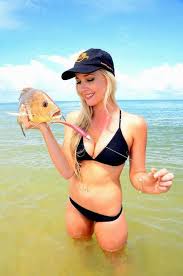Sport fishing competitions give competitors (individuals when the fishing is carried out in land, usually teams where conducted from boats) a nominated time and area from where they may be to trap fish. Scores are awarded for every fish caught, the points according to the fish's weight and species, then, sometimes, divided from the strength in the fishing line used (so catching fish on thinner, weaker line scores additional points). In tag and release competitions, a designated score per fish, divided because of the line strength, is awarded per species caught.
Gee Mix Channel merupakan sebuah blog yang memaparkan hal-ehwal semasa, termasuk, pendidikan, perniagaan, kesihatan dan kecantikan, internet dan komputer, teknologi, kenderaan, muzik dan hiburan, fotografi dan juga rekabentuk laman web serta banyak lagi informasi-informasi yang berguna. Gee Mix Channel menyediakan perkhidmatan tulisan secara percuma hasil dari pengumpulan maklumat dan juga nota-nota dari penulis untuk tatapan para pembaca.
Sunday, June 2, 2013
Definitions of Sport fishing
Sport fishing is often a sort of recreational fishing the location where the primary reward would be the challenge of finding and catching the fish instead of the culinary or financial valuation on the fish's flesh. The distinction is not completely rigid - most of the time, sport fishers will also eat their catch. The philosophies and tactics used for sport fishing, however, are often sufficiently completely different from "food fishing" to create the excellence clear enough.
 Sport fishing methods vary based on the area being fished, the species being targeted, the individual strategies of the angler, as well as the resources available, ranging from the aristocratic art of fly fishing, ostensibly invented in the UK, on the high-tech, incredibly expensive methods used to chase marlin and tuna. In virtually any case, however, the fishing is finished with hook, reel and rod in lieu of with nets or other aids.
Sport fishing methods vary based on the area being fished, the species being targeted, the individual strategies of the angler, as well as the resources available, ranging from the aristocratic art of fly fishing, ostensibly invented in the UK, on the high-tech, incredibly expensive methods used to chase marlin and tuna. In virtually any case, however, the fishing is finished with hook, reel and rod in lieu of with nets or other aids.
 During the past, sport fishers, even if they didn't eat their catch, generally killed these to bring them to shore to become weighed or preservation as trophies. External pressure from conservationists, along with an authentic concern about fish stocks, have caused many sport fishers to begin with releasing their catch alive, sometimes after fitting all of them with identifying tags and recording their details so as to aid fisheries research (known as tag and release).
During the past, sport fishers, even if they didn't eat their catch, generally killed these to bring them to shore to become weighed or preservation as trophies. External pressure from conservationists, along with an authentic concern about fish stocks, have caused many sport fishers to begin with releasing their catch alive, sometimes after fitting all of them with identifying tags and recording their details so as to aid fisheries research (known as tag and release).
Sport fishing competitions give competitors (individuals when the fishing is carried out in land, usually teams where conducted from boats) a nominated time and area from where they may be to trap fish. Scores are awarded for every fish caught, the points according to the fish's weight and species, then, sometimes, divided from the strength in the fishing line used (so catching fish on thinner, weaker line scores additional points). In tag and release competitions, a designated score per fish, divided because of the line strength, is awarded per species caught.
Sport fishing competitions give competitors (individuals when the fishing is carried out in land, usually teams where conducted from boats) a nominated time and area from where they may be to trap fish. Scores are awarded for every fish caught, the points according to the fish's weight and species, then, sometimes, divided from the strength in the fishing line used (so catching fish on thinner, weaker line scores additional points). In tag and release competitions, a designated score per fish, divided because of the line strength, is awarded per species caught.
Labels:
Definitions of Sport fishing,
Fishing
Location:
Pulau Pisang, Johor, Malaysia
Subscribe to:
Post Comments (Atom)
No comments:
Post a Comment